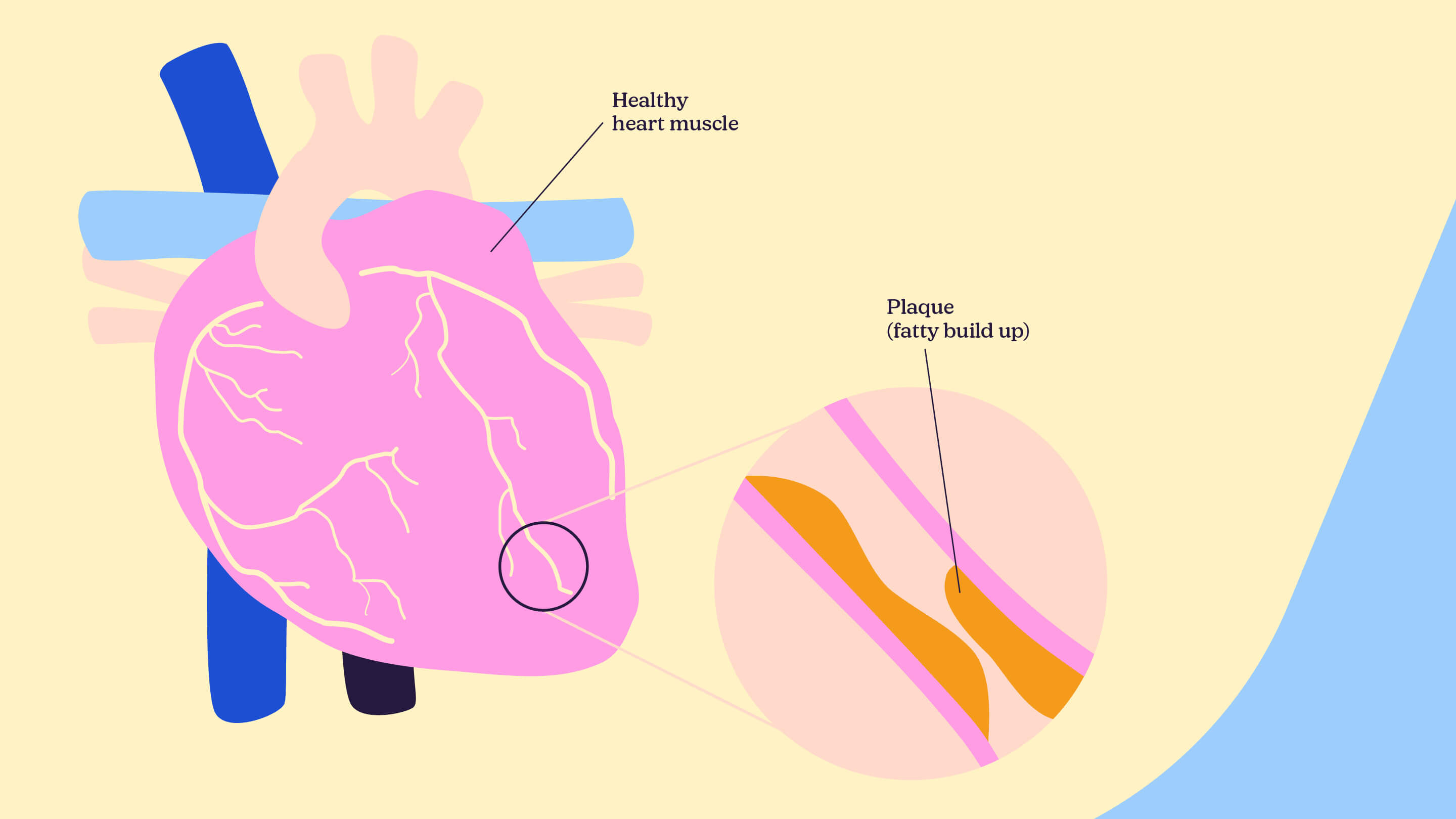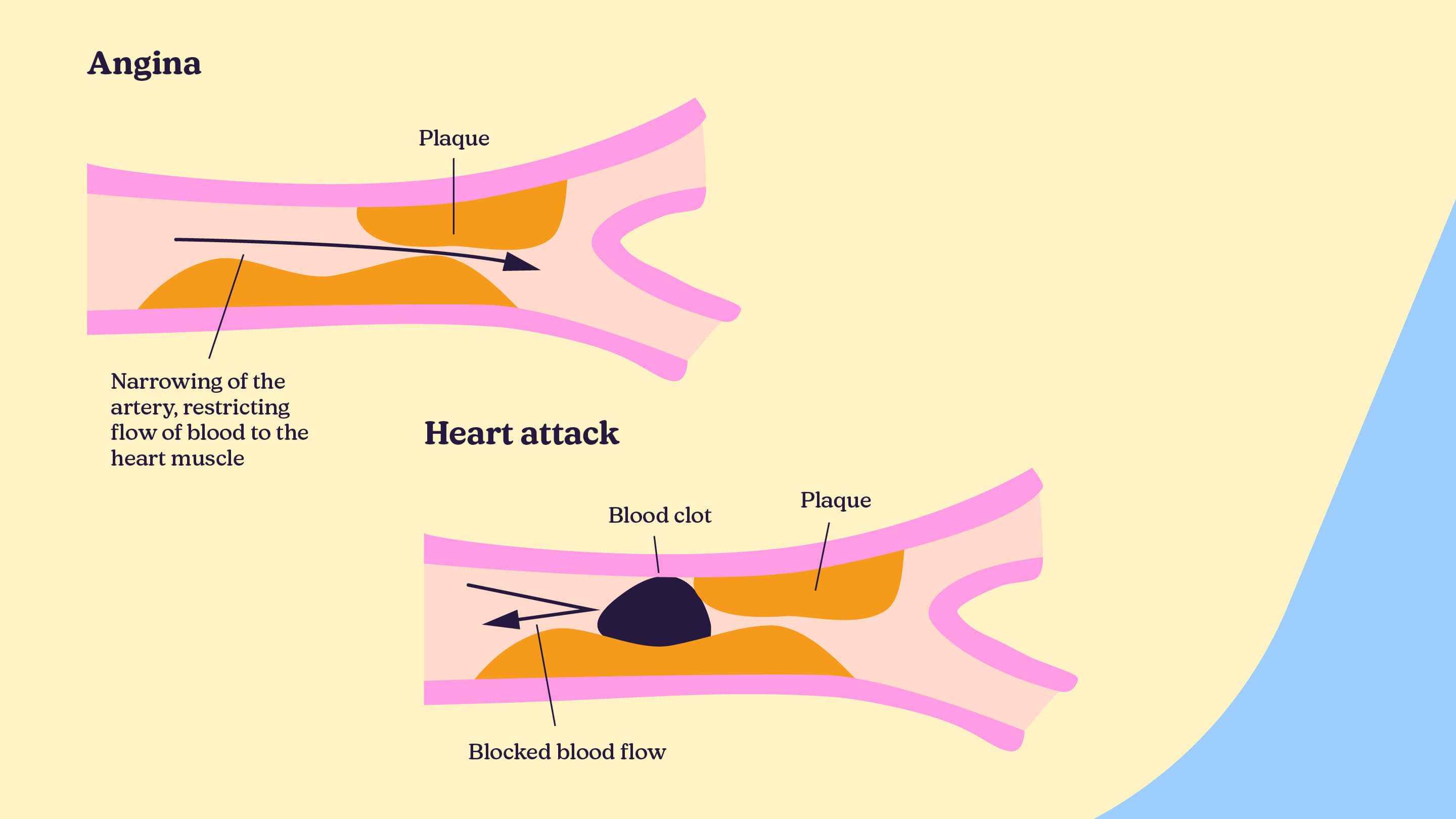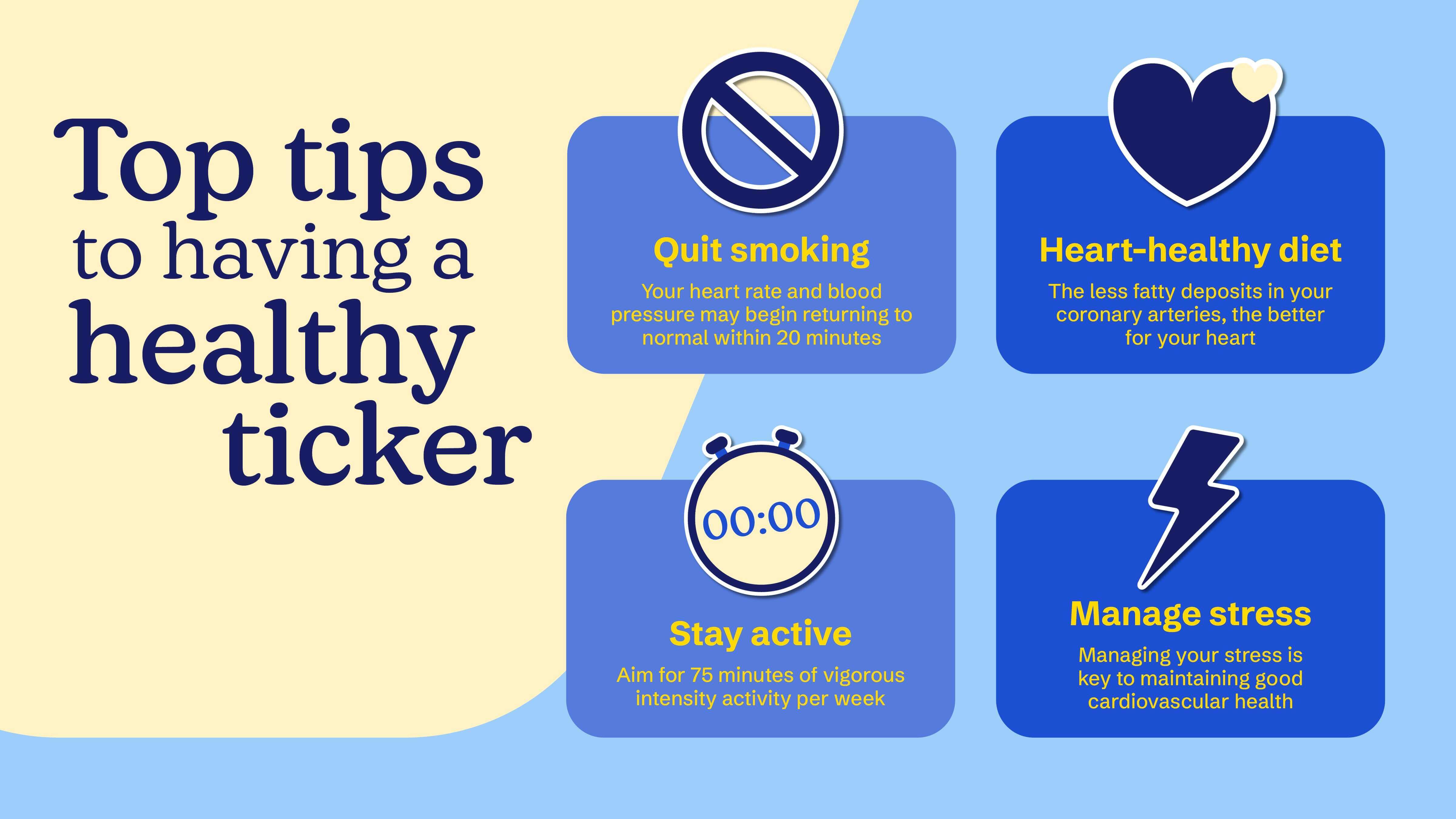What are the early signs of a heart attack?
Recognising the signs of a heart attack, and how they may differ, may make the difference in a life changing moment.

Knowing which heart attack symptoms to look out for may mean finding help quicker and avoiding more serious medical problems in the aftermath. In this article, you’ll find answers to:
What is a heart attack?
A heart attack, also known as a myocardial infarction, happens when the blood flow to a part of the heart muscle is suddenly blocked, which may damage the heart and can be life-threatening.
Often, heart attacks are caused by coronary heart disease (CHD), which is when coronary arteries become narrowed from fatty substances within their walls. These arteries bring blood, with high levels of oxygen, to your heart. Over time, a fatty substance called atheroma (or plaque) can build up and make the arteries too narrow for the blood to flow to the heart.


If a piece of plaque breaks off, a clump of blood (called a blood clot) may form as a way to repair the damage to the wall. But this clot could block the coronary artery so that blood and oxygen can’t get to your heart muscle. When this happens, it’s known as a heart attack.
What are heart attack symptoms?
Symptoms of a heart attack are different from person to person, but can include:
- pain or discomfort in your chest, which happens suddenly and doesn’t go away. This pain could feel like tightness, squeezing, a dull ache or pressure, like someone is sitting on your chest.
- pain that spreads to your arms, neck, jaw, back or stomach. For some, this may feel like heaviness or a burning sensation similar to indigestion. And while the pain or tightness may feel severe for some, it may simply feel uncomfortable for others.
- feeling sweaty, sick, light-headed or short of breath. Some may also describe feeling overwhelmingly anxious with rapid or irregular heartbeats.
- excessive coughing or wheezing.
You can experience a heart attack with some or all of these symptoms, and it’s important to remember that everyone experiences pain differently.
What are heart attack symptoms in women?
“The most common heart attack symptom that both women and men experience” says the British Heart Foundation, “is chest pain or discomfort. While symptoms vary from person to person, there are no symptoms that women experience more or less often than men."
Incorrectly believing that women suffer different symptoms to men could mean misdiagnosis, delays in treatment and receiving less intensive medical interventions.
But while you may expect to see the same type of symptoms between men and women, it seems women may experience heart pain differently. “Women often describe heart attack pain as pressure or tightness in the chest,” says the Heart Research Institute, “and not the severe pain often felt by men.”
Although women in the UK have half the number of heart attacks as men, it’s still a major health concern. Each year, more than 30,000 women are hospitalised in the UK for a heart attack and, every year, coronary heart disease kills more than twice as many women as breast cancer.
Do trans people have a higher risk of heart attacks?
Some research suggests that transgender (trans) people may be at higher risk for heart problems, but some of the research isn’t clear on why this could be the case.
Being transgender means identifying differently from the biological sex that was assigned at birth. Some trans people use gender-affirming hormone therapy so that their body more closely represents their gender identity. Often, this means taking either testosterone or oestrogen and making sure to monitor hormone levels throughout their life .
However, regardless of whether a trans person takes hormones, it seems they’re at higher risk for heart attacks and strokes. And while a 2024 study in the European Journal of Endocrinology found that, “transgender people have a 40% higher risk of CVD (cardiovascular disease) compared with cisgender people of the same birth sex,” the causes aren’t definitive. Footnote [1]
For some trans people, facing persistent stigma and coping with the stress of discrimination may lead to poor mental health, which might make it more challenging to make positive lifestyle choices or changes.
But there are positive steps we can all take to help reduce our risk of a heart attack.
What can I do to help prevent a heart attack?
“There are many ways we can help keep our heart ticking healthily,” says Aviva’s Medical Director Dr Doug Wright “From eating a heart healthy diet, with lean proteins and plenty of fruits and vegetables, to staying active and managing your stress, caring for your heart is possible with managed steps. It may seem overwhelming, but small changes in your daily routine could lead to significant improvements in your overall cardiovascular health.”
Here are our top tips to having a healthier ticker:

What should I do if I’m having a heart attack?
“It’s important to remember that a heart attack is a medical emergency,” says Dr Wright, “so call 999 immediately. As you’re waiting for the ambulance, make sure to sit down. And although it may be difficult, stay calm. If you have it, and you’re not allergic, take 300mg of aspirin. In the ambulance, you’ll most likely get an electrocardiogram (ECG) reading to measure the electrical activity in your heart. This will help decide whether you’re having a heart attack, so you can be treated as quickly as possible.”
So, remember to:
- call 999 immediately
- sit down and stay calm
- take 300mg of aspirin, if you’re not allergic and have it nearby
- wait for the ambulance and an ECG reading.
Next article
Your practical guide to understand and tackle obesity
Discover some of the causes and health risks of obesity, how you can combat it, and what we can do to help on your journey.



